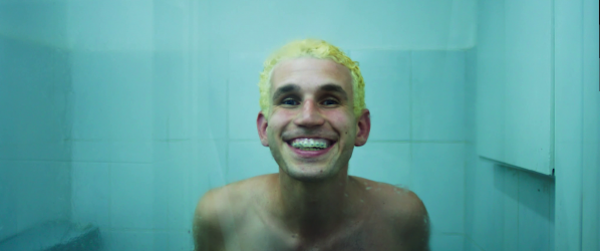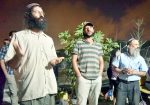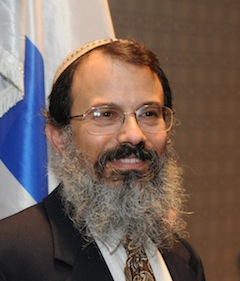Like many Jewish kids who go to religious school twice a week, my understanding of Israel and its history was, well, simplistic. That changed when I was 16.
I went to live, on my own, on Kibbutz Beit HaShita for a year as part of their “American school” program. It was transformative for me in many ways. Among other things, I learned that Hebrew was a living, dynamic language, Jews were a diverse and complex people and that the land’s history was complicated. Also, I found out that, even far away from home, if, heaven forbid, something went wrong, there were, as Mr. Rogers described, helpers all around me. It was like all these strangers were distant relatives, a feeling I’d never experienced before.
I was a teenager, speaking in my third language, at a bus stop late one night in Jerusalem. I was scared I would miss the bus and not make it back to my class or back to the kibbutz. The motherly woman at the bus stop engaged me in small talk. “Oh,” she said, “You sound like you come from Beit HaShita. My cousin lives there. Don’t worry. If you miss the right bus, you can spend the night on my living room couch.” I felt alarmed at the time, but the bus arrived and I got home safely. I still remember that kind person’s offer – and it’s been more than 30 years.
For several reasons, I’ve never been back to Israel. I’ve wanted to go but life got in the way. Also, I did a lot more learning, in undergraduate and graduate school, and the complexity of the political situation felt intense. I navigated the opinions expressed in the Arabic classes I took and those of friends from all over the world. Due to antisemitism or facing someone who “hated Israel,” it sometimes felt hard to explain where I’d lived. I didn’t feel OK about some of Israel’s policy choices at times. I believed (and still do) that Palestinians deserved their own state, much the way many Israelis do, but I wasn’t Israeli so I didn’t vote there. It wasn’t my place to shift their politics. I just didn’t want to erase Israel. Yet, I also wasn’t sure if my very limited travel money should be spent on that tourism industry.
All this began to change after my twins were born. Winnipeg is a city of immigrants. Many newcomers I met in the Jewish community here spoke Hebrew and had lived for awhile in Israel, even if they were born elsewhere. After many years of only using prayer Hebrew, my brain woke up. Modern Hebrew sometimes began coming out of my mouth again. Suddenly, I was standing at the coat racks outside of the preschool classroom, trying to help a 2-year-old new to the school from Israel and, whoa, the preschooler Hebrew just came out of my mouth at a quick pace. My twins were stunned!
After the May 2021 war in Israel and Gaza, I spent time unfollowing and changing my social media habits. I wanted less hate and more nuanced news sources. Some of that news now arrives in Hebrew first, with occasional other languages mixed in. I got back in touch with my Hebrew study partner from university days, who lives in Jerusalem. When we streamed services from synagogue or made a seder, I felt more connected to those prayers about the state of Israel than I had in a long time.
The recent deaths in Israel, caused by terrorists who killed civilians, border patrols and police officers, Jews, Druze, Christians, Israelis and even Ukrainian workers, hit me hard. It felt again like I was losing cousins and friends. Even amid the isolation of pandemic times, I keenly felt the loss of these Israeli souls.
Birthdays are funny things. There are years when my own birthday comes and goes without much fanfare. I make myself a chocolate cake, some relatives or friends call, nothing much happens. I’m not much for big parties. Even before the pandemic, sometimes my early January birthdays were frigid and unremarkable. This year, though, I anticipate Israel’s 74th with a more deeply felt celebration.
I’m not likely to be part of a big event on Yom Ha’atzmaut and, for now, my travel budget remains small. Rising antisemitism in the world makes me worried though. It reminds me of how we need to ensure this safe place for future generations. I am in awe of just how much Israel has accomplished so far – in technology, education, medicine and more.
This is a year when I feel a big need to celebrate Israel and its continued existence amid adversity. Sometimes, bad things happen. Finding a space for gratitude helps remind us of what we do have – places to call home.
Happy birthday, Israel! Wishing you and all your inhabitants a happy, healthy and peaceful year to come. May you grow in mitzvot and success this year – and wishing you many, many productive years to come.
Joanne Seiff has written regularly for CBC Manitoba and various Jewish publications. She is the author of three books, including From the Outside In: Jewish Post Columns 2015-2016, a collection of essays available for digital download or as a paperback from Amazon. Check her out on Instagram @yrnspinner or at joanneseiff.blogspot.com.



